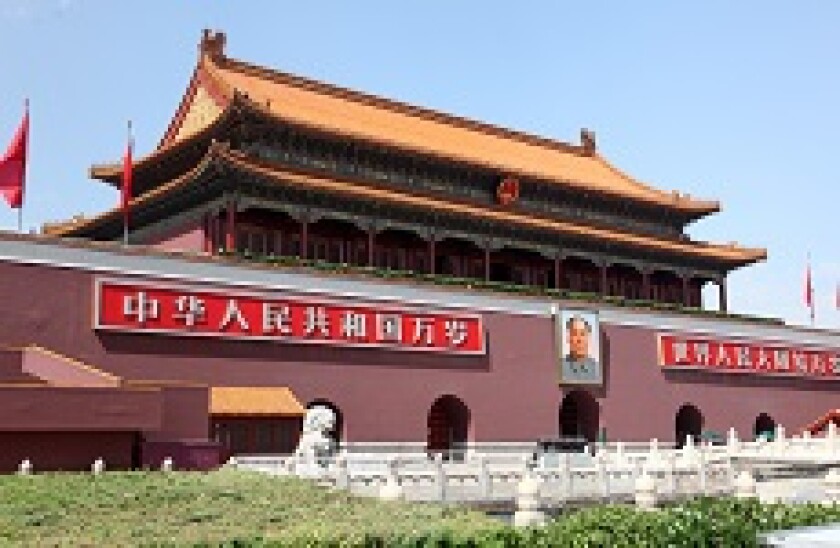The PBoC’s FX reserves rose by $8.6bn in November to $3.06tn, the first increase in three months, according to data released on December 7. The increase surprised analysts.
“Based on our estimate, the currency valuation effect was small at about -$1bn in November,” Maggie Wei, China economist at Goldman Sachs, wrote in a December 7 note. “The fall in US treasury yields during the month might have contributed to the reserves’ increase, in our view.”
A second reason might be that the bond and stock inflows from offshore offset the use of foreign reserves for foreign market interventions, Iris Pang, economist of Greater China at ING Group, wrote in an article dated December 10.
“If capital inflows are the underlying reason for this unexpected increase, then we expect more to come in the months ahead,” Pang wrote. “We expect the government to stabilise the A-shares and forex markets that more foreign money enters China’s onshore markets.”
The official statement from the State Administration of Foreign Exchange attributed the increase to the stabilising renminbi as well as rising asset prices.
*
BNP Paribas China became the third international bank to receive the Panda Corporate Bond Lead Underwriting License Type B from National Association of Financial Market Institutional Investors (Nafmii), according to a Monday press release. Before receiving the license, the bank could only act as an advisor and syndicate member for corporate Panda bonds.
HSBC (China) and Standard Chartered (China) obtained the license in October last year and January this year, respectively.
*
Shanghai Stock Exchange, Shenzhen Stock Exchange and Hong Kong Exchanges and Clearing (HKEX) have reached a consensus on the inclusion of companies with weighted voting rights in southbound trading under the Stock Connect scheme, according to a statement issued by the HKEX and Shanghai Stock Exchange on Sunday.
The arrangement will aim to further enhance the mutual market access programme between mainland China and Hong Kong. The new rules are expected to be implemented in mid-2019.
*
Prudential’s investment arm, Eastspring Investments, opened a wholly foreign-owned enterprise (Wfoe) in Shanghai, according to a press release on December 5. The new subsidiary will allow Eastspring to offer investment products including equity and fixed income to China’s high net-worth clients. The Wfoe will aim to provide Eastspring’s overseas clients with access to direct investment opportunities in China
*
The Chinese government hosted the first meeting of the National Science and Technology Leading Small Group on December 6. The group’s main task is overseeing the drafting of the country’s long-term technology strategy. Premier Li Keqiang chaired the group.
“Technological innovation strategy should be better integrated into the overall development of the country, focus on the modernisation of society, and focus on breakthroughs in key core technologies,” Li said during the meeting.
The English language version of the meeting report substituted the word “core” technologies with “key” technologies, Trivium, a Beijing-based research firm focusing on China, noted.
“That’s because most ‘core’ technologies are currently controlled by the US, and China is keen to downplay the fact that it is looking to displace the US from the top of the technology league tables,” the firm wrote in the December 7 note.
The premier also called for long-term support for basic research and a practically minded academic atmosphere.
*
The meeting happened amidst the political fallout from the arrest of the CFO of China telecom giant Huawei in Vancouver.
So far, a number of official government agencies such as the Ministry of Foreign Affairs, the Chinese Embassy in Canada, and the Shenzhen government, have issued statements protesting the arrest.
Over the weekends, both Canada's ambassador John McCallum ad US ambassador Terry Branstad, have been summoned by the Chinese government and received protests against the detention.
*
The FTSE China A50 Index Futures saw 8.5m contracts traded in November on the Singapore Exchange, down 9% MoM and up 16% YoY, according to a report published on Friday.
USDCNH futures trading reached 576,014 contracts in November, up 30% MoM and up 153% YoY, thanks to renminbi volatility.
In comparison, the average daily volume of USDCNH futures in November on HKEX was 6,242 contracts over 22 trading days, up 21.2% from October.
*
China, Japan and South Korea held trilateral free trade agreement talks on December 7 in Beijing, the fourteenth round of negotiation.
According to a document issued by China, the three countries agreed to start working group meetings and discuss practical matters in areas of tangible goods and service trading, as well as mutual investments.
*
November CPI inflation eased to 2.2% YoY in November and PPI inflation decreased further to 2.7% YoY, according to official data published by the National Bureau of Statistics.
YoY’s PPI inflation moderated for the fifth consecutive month to 2.7% YoY in November, the lowest since November 2016, Zhennan Li, China economist at Goldman Sachs, pointed out in a December 9 note.
*
Nafmii, together with PBoC and China Securities Regulatory Commission, set up the Green Bonds Standards Committee on December 7, according to Nafmii’s WeChat post.
“The establishment of the committee marks the start of self-regulation and management of the Chinese green bonds market,” said Ma Jianyang, deputy director of financial market department at PBoC.

